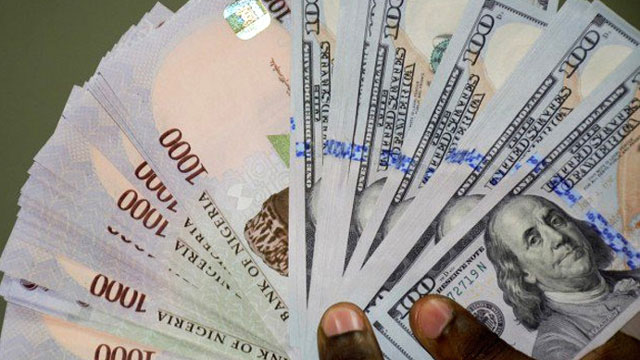
Investors may be fretting about Nigeria’s naira, but they’re still buying the country’s dollar debt.
Africa’s most-populous country returned to international capital markets for the first time in almost four years Thursday, selling $1 billion of 15-year bonds at 7.875 percent, below the the initial target of about 8.5 percent. Indications are that investors bid for more than five times the amount offered, according to Kevin Daly at Aberdeen Asset Management Plc, who bid for the bonds.
At marketing meetings in New York and London over the past week, some investors were left frustrated by Nigeria’s lack of clarity on the naira, which fell 37 percent against the dollar after the central bank removed a currency peg in June. Since then, the bank has held the naira steady through a combination of trading restrictions and intervention. Still, the offer was sweet enough to entice investors like Daly, who is betting an inevitable devaluation will help spark economic growth in Africa’s most-populous country.
‘Positive News’
“If they ever get around to allowing the currency to adjust further, this should be supportive for risk premiums,” said Daly, a London-based portfolio manager at Aberdeen, which oversees about $11 billion of developing-nation assets. “There is still a bit of value there, it’s not screaming cheap, everybody knows about the currency but the economy is set to rebound, oil is up, there is some positive news on the horizon.”
Nigeria is struggling to emerge from a recession as it grapples with falling oil revenues and a crippling shortage of foreign exchange. The roadshow delegation, led by Finance Minister Kemi Adeosun and Sarah Alade, a deputy governor at the central bank, was short on detail about “fine-tuning the foreign-exchange system,” according to Daly.
The naira black market rate fell to a record 500 last week, almost 40 percent weaker than the official one. When Nigeria last turned to international capital markets in July 2013, oil, its main export, was at about $110 a barrel and the economy was growing more than 5 percent annually. Crude prices have since halved and gross domestic product contracted in 2016 for the first time in a quarter century, according to the International Monetary Fund.
Buoyed by risk-on sentiment, issuers from developing nations have raised more than $73 billion in dollar- and euro-denominated bond sales this year, the best start to a year on record, according to data compiled by Bloomberg. Latvia is selling 650 million euros in 10-year and 30-year notes on Thursday, while Tunisia is marketing a seven-year euro-denominated bond.
The yield on Nigeria’s existing dollar bonds due in 2023 fell 18 basis points on Thursday to 6.54 percent. Citigroup Inc. and Standard Chartered Plc are managing the sale.
